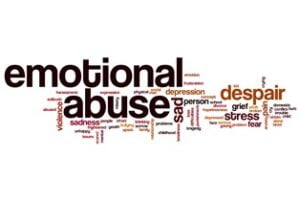Contents
- 1 Hoovered Emotional Abuse
- 2 What Is Emotional Abuse?
- 3 Signs Of Emotional Abuse
- 4 How Does Emotional Abuse Affect People?
- 5 What To Do If You’re Being Emotionally Abused?
- 6 Heal From Emotional Abuse
- 7 Ways To Prevent Cases Of Emotional Abuse
- 8 Emotional Abuse By Narcissist
- 9 How Does Narcissist Affect The Mental Health Of Other People?
- 10 Conclusion
Hoovered Emotional Abuse

Hoovered emotional abuse is a difficult thing to define, and the only way to know if you or someone you love is a victim of this type of abuse is to look for the signs. There are many forms these abuses can take-from manipulation to outright verbal abuse-but all of them have one thing in common: they damage the victim’s sense of self-worth. Let’s explore some other important information that may help you identify emotional abuse in your own life, and how it can be healed.
Emotional abuse is one of the most damaging forms of abuse. It damages children’s brain development and can lead to lifelong problems with mental health, self-esteem, and relationships.
But despite this, emotional abuse in the home is often not taken as seriously as other forms of abuse. It can be hard to prove and difficult for professionals to spot, meaning children who are suffering it might not get the support they need.
What Is Emotional Abuse?
 Emotional abuse is a form of abuse that is often overlooked. It can be difficult to detect because it’s not visible, but there are some telltale signs of emotional abuse. There are three kinds of emotional abuse: verbal, manipulation, and rejection.
Emotional abuse is a form of abuse that is often overlooked. It can be difficult to detect because it’s not visible, but there are some telltale signs of emotional abuse. There are three kinds of emotional abuse: verbal, manipulation, and rejection.
Verbal emotional abuse is when somebody says something hurtful to the victim. This might include name-calling, criticizing them, or laughing at them. These kinds of words can chip away at somebody’s self-esteem until they don’t feel wanted or loved anymore. Manipulation includes making the victim feel guilty for asking the abuser for anything or trying to make decisions for themselves. Examples of making somebody feel guilty might be using guilt trips on them or threatening their pet if they failed to do what they were told.
Rejection and withholding affection is also a form of emotional abuse. While all types of emotional abuse can be damaging, rejection and withholding affection can lead to more serious problems like depression and anxiety. This kind of abuser might not let the victim know that they care about them or send mixed signals by saying things like “I love you but…”. Or they may withhold physical contact such as hugging, kissing, or touching somebody when it’s wanted.
Signs Of Emotional Abuse
You might be the victim of emotional abuse if your loved one: Never wants to spend time with you; Makes you feel guilty for spending time with other people; Threatens to hurt themselves if you don’t do what they ask; Let’s you know that you are not wanted or loved; Tells you that you are a bad parent/partner/child; Blames others for their problems, feelings, and behavior.
If you’re experiencing any of these things, it could be time to consider getting out of the relationship. If your partner is willing to get help themselves then there are ways that both parties can begin healing instead of ending the relationship.
How Does Emotional Abuse Affect People?

Emotional abuse often starts when somebody feels ignored by other family members or friends. It gradually chips away at someone’s self-esteem until they feel unwanted in their own family or friendship group. Then the abuser might begin treating them worse, making them feel even more damaged.
Some people have better-coping skills than others to deal with emotional abuse. This means that if somebody is already struggling with mental health issues, they might find it harder to cope with the damage done by emotional abuse. If somebody continues to experience emotional abuse, they can become very depressed and anxious. It can also lead to future problems like addiction and difficulty trusting other people.
With the right help, anybody who has experienced emotional abuse can take steps forward to get better. They need to recognize what they’ve gone through and not feel ashamed about it either. Emotional abuse isn’t something that can easily be forgotten but there are ways of coping with it and moving forward. The sooner somebody recognizes what is happening, the sooner they will heal emotionally from such a tough experience.
What To Do If You’re Being Emotionally Abused?
The best way to prevent hoovered emotional abuse is to confront the abuser. If they know that this is what they’re doing, they will hopefully stop and make an effort to be more mindful of their actions. They may also seek therapy in order to understand why they feel the need to hurt people emotionally. Secondly, it’s important for people who are victims of hoovered emotional abuse to believe in themselves and not let anyone tell them how they should feel and think. Finally, if close friends and family notice there is a pattern of behavior that suggests abuse is occurring. They can then take steps to intervene and help stop the abuse from continuing.
Heal From Emotional Abuse

There’s evidence that self-esteem levels affect how well somebody heals emotionally after experiencing any kind of traumatic situation. Self-esteem during these times is affected by both external and internal factors, including Physical attractiveness How much contact you’ve had with family and friends The amount of money earned by the household External threats like a person’s safety and financial situation
It is important to remember that there are factors, both internal and external, that you have some control over which will help to improve the healing process. There are many ways of improving self-esteem after experiencing emotional abuse.
Reach out for support from friends and family who care about you. This can be a great way to remind yourself that you aren’t going through this alone. Talking with somebody face to face can not only provide reassurance but also allow them to give their own perspective on the situation.
Reconnecting with old hobbies you enjoyed is a great way to boost your mood. It also reminds you of a time where you didn’t feel as low as you do now. Spending time outdoors can also lift your spirits. It provides a distraction from negative thoughts that may be going around in your head and allows your mind to focus on what is happening outside of yourself.
Another positive way to help improve self-esteem after emotional abuse is seeing a therapist. This increases the amount of support you have as well as gives you some time for reflection along with somebody who isn’t as emotionally invested. Cognitive-behavioral therapy helps people to recognize negative behaviors and look at how they might avoid them in the future.
Ways To Prevent Cases Of Emotional Abuse
Some things that can be done to decrease the chance of future cases of emotional abuse is to:

- Talk with your child about what is happening in their lives and listen to how they feel.
- Be open and honest with your spouse/partner and ask for them not to insult you.
- Find a therapist for yourself and make sure that they are committed to preventing abuse from happening again.
- Find somebody to talk about how you are feeling with, whether it is a friend or family member.
- Make sure that the therapist you choose for your child understands what they’re going through and can give them some advice on how to deal with future cases of emotional abuse.
If somebody shows signs of being emotionally abusive then there are ways you can prevent them from becoming worse. If somebody comes home angry on a regular basis, perhaps having an early night so that they have time to calm down before seeing friends or family might be helpful. Removing yourself from certain people who have been confirmed as being abusive will also help stop the negative cycle. It teaches children not to treat other people in the same way while showing adults that nobody deserves this kind of treatment.
Children in particular need to know that there is nothing wrong with them and should be encouraged all the time by everybody around them to keep believing in themselves. It’s just as important for parents and guardians to practice how they talk positively with their children as well as making sure that the child knows where they stand on certain decisions.
Emotional Abuse By Narcissist

Emotional abuse is a type of emotional attack by one person on another. It can take many forms and can be difficult to identify. However, there are many signs that emotional abuse is occurring. There are five major types of emotional abuse: rejection, neglect, terrorizing, objectifying, and corrupting.
Rejection occurs when the abuser makes the victim feel unwanted and worthless. They may do this by saying critical things or even giving them the silent treatment for extended periods of time. Leading them to believe they’re not wanted around. Neglect is when the abuser either ignores the victim’s needs or doesn’t provide food, water, shelter, and so on to them as they should. Terrorizing is when the abuser invades their privacy, makes them feel like they’re in danger, or keeps them under surveillance. Objectifying is when the abuser tries to make the victim believe they are an object. Lastly, creating a sense of corruption happens when the abuser manipulates their feelings and thoughts. Until they feel that what is happening is “okay”.
How Does Narcissist Affect The Mental Health Of Other People?
The Narcissist has the power to affect the mental health of other people. They can do this in a number of ways and in a number of different situations. The Narcissist may neglect their spouse, for example, and humiliate them. They may neglect their children and make them feel like they’re not wanted around. And finally, they might abuse someone emotionally by saying critical things to them. Or even giving them the silent treatment long enough that they start to believe that the narcissist doesn’t want them around anymore. These are all ways that the Narcissist can affect another person’s mental health. The person who is the target may feel depressed and worthless as a result of the Narcissist’s actions.
Two-Sided Coin of Narcissistic Abuse

Emotional abuse can be a very strong tactic because it targets the person’s emotions and makes them feel worthless. As the victim feels worse and worse about themselves. They may begin to believe that this is truly how they should feel deep down inside. The abuser will make them think this by saying critical things or manipulating their emotions. Until they feel bad for feeling good about themselves. If the abuser treats the victim as an object rather than a person. Then it becomes harder for them to stand up to the abuser and leave the relationship. In this case, there is no clear solution except trying to find ways to get out of the manipulative situation without triggering more emotional attacks from the other party.
Hoovered emotional abuse is a form of bullying where the victim gets emotionally hurt by someone they trust and love. The perpetrator may be a family member, spouse, or close friend who hovers over them with criticism and negativity without any constructive feedback to help them improve. This type of emotional abuse can leave victims feeling like there’s no way out. Because their abuser doesn’t allow for any mistakes on their part.
Conclusion
If you’re in an abusive relationship have been the target of hoovered emotional abuse, that feels impossible to get out of. We want you to know that it’s not your fault. We are here 24/7 ready to listen, provide resources about how this happens, share ways people have overcome these types of relationships before as well as give advice on what steps need to take place next if you’re ready to leave and heal.
For more information, please contact MantraCare. Abuse is a serious and harmful behavior that can cause physical, emotional, or psychological harm to a person. If you have any queries regarding Online Counseling experienced therapists at MantraCare can help: Book a trial Online therapy session


